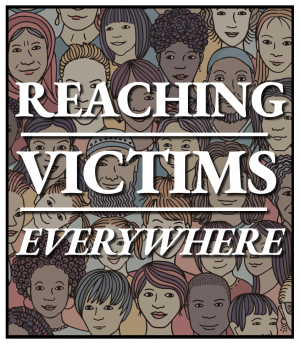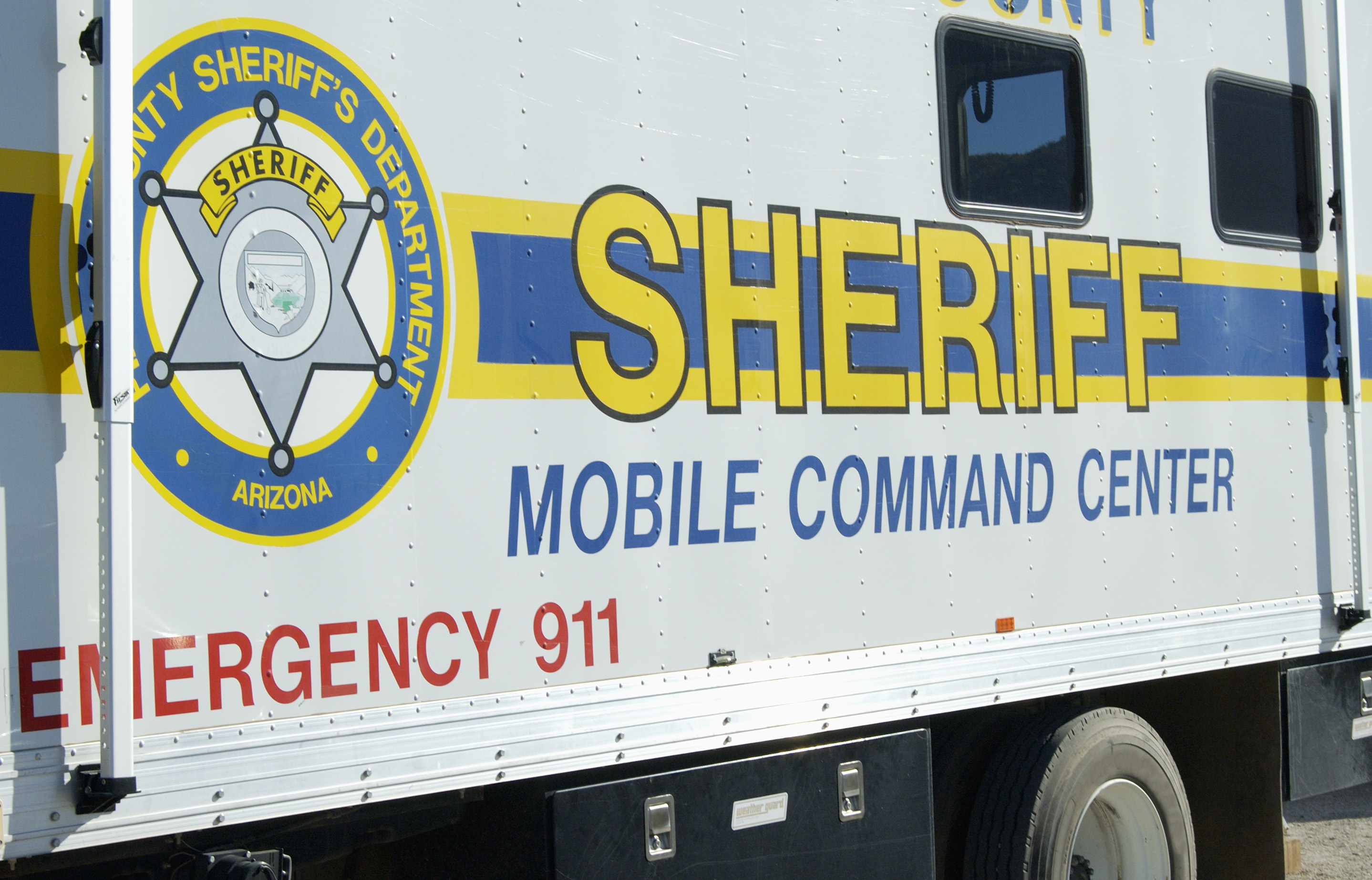Direct Services
OVC makes funding available for direct services to victims through—
- state formula grants,
- VOCA statutory set-asides,
- OVC discretionary funding, and
- The Antiterrorism Emergency Reserve.
State Formula Grants
OVC administers two formula grant programs that support crime victim compensation and assistance—the VOCA Victim Compensation Formula Grant Program and the VOCA Victim Assistance Formula Grant Program. Every year, OVC awards each eligible state and territory a VOCA victim compensation grant to supplement state funds that reimburse victims for out-of-pocket expenses resulting from crime, such as medical and dental care, funeral and burial assistance, counseling, and lost wages and support. OVC also awards each eligible state and territory a VOCA victim assistance grant to support services—such as intervention and counseling, referrals, assisting primary and secondary victims, helping victims participate in the criminal justice system, and assistance with safety planning—for victims of crime.
VOCA Statutory Set-Asides
OVC supports direct services for victims of federal crimes through the following federal agency programs:
- The Children’s Justice Act (CJA) provides up to $20 million annually to help states and tribes develop, establish, and operate programs to improve the investigation and prosecution of child abuse and neglect cases—particularly cases of child sexual abuse and exploitation—and to improve the handling of cases of suspected child abuse or neglect fatalities. Each year, OVC provides the Department of Health and Human Services (HHS) with up to $17 million to support CJA Task Forces in every state and territory. An additional $3 million supports new targeted programs in Indian County and is integrated into DOJ's Combined Tribal Assistance Solicitation.
- OVC provides funding to the Executive Office for United States Attorneys (EOUSA) to support victim specialists who assist victims of federal crimes during justice system proceedings and provide advice regarding victim's rights, such as the right to make oral and written victim impact statements at sentencing hearings. In FYs 2017 and 2018, nearly $48 million in VOCA funding supported 181 (full-time equivalent) victim specialists serving in the 93 USAO districts and 12 victim specialists exclusively serving Indian Country.
- OVC provides the Office on Violence Against Women with funding to support financial and technical assistance to communities that are developing programs, policies, and practices aimed at ending domestic violence, dating violence, sexual assault, and stalking. In FYs 2017 and 2018, VOCA set-asides transferred to OVW totaled $326 million and $492 million, respectively.
- OVC provides the Federal Bureau of Investigation (FBI) with funding for victim specialists assigned to field offices throughout the Nation who personally assist victims of federal crimes and impart information on criminal cases as they develop and throughout court proceedings. FYs 2017 and 2018 funds of nearly $42 million helped support 24 new positions, including 8 child and forensic interviewers and 15 new victim specialists.
- Each year, OVC provides up to $5 million to the Victim Notification System (VNS), an automated database that notifies victims of federal criminal case events regarding offenders, including the status of an investigation, filing of criminal charges and the disposition of those charges, release or detention status, and public court hearings. In FYs 2017 and 2018, OVC funding supported EOUSA's efforts to upgrade, enhance, and operate the VNS to continue providing timely and consistent notification to federal crime victims, as mandated by the Justice for All Act of 2004 and the Attorney General Guidelines for Victim and Witness Support.
- Since 2015, OVC has transferred $10 million per year to the Office of the Inspector General for use in auditing and assessing risks and deficiencies in the management of OVC programs.
- For the first time, in FY 2018, a 3-percent tribal set-aside for victim services made $133 million available for use in fulfilling critical, long-standing needs among tribes.
OVC Discretionary Funding
OVC provides discretionary grants for national-scope demonstration projects and training and technical assistance to enhance the professional expertise of victim service providers. These grants are competitively awarded to states, local government agencies, tribal governments, educational institutions, private nonprofit organizations, and individuals. Programs identify and implement promising practices, models, and initiatives; address gaps and needs in training and technical assistance; and fund demonstration programs that may provide direct services. Up to 50 percent of OVC discretionary funding may be used to support and enhance services to victims of federal crimes through support for tribal grants and positions at agencies such as the Bureau of Indian Affairs, the U.S. Department of Defense, and the National Park Service.
The Antiterrorism Emergency Reserve
Following the 1995 Oklahoma City bombing, Congress amended VOCA to authorize OVC to allocate up to $50 million per year from the Crime Victims Fund to establish the Antiterrorism Emergency Reserve (Reserve). The Reserve provides help primarily through funding for immediate and direct services for victims of terrorism and criminal mass violence within the United States and abroad, supplemental funding provided directly to affected communities, and training and technical assistance services. In FYs 2017 and 2018, Reserve support for victims totaled $36.4 million and $7.3 million, respectively.
OVC collaborates with federal, state, local, and international partners to ensure that victims and survivors of domestic mass violence and both domestic and international terrorism incidents receive support to begin the healing process—physically, emotionally, and financially.
The OVC Director may replenish the Emergency Reserve by setting aside up to 5 percent of the amount remaining in the Crime Victims Fund in any fiscal year after the VOCA allocations have been awarded for that year. The Emergency Reserve funds emergency expenses and other services for victims of terrorism and mass violence within the United States and abroad by supporting the following programs:
- The Antiterrorism and Emergency Assistance Program (AEAP);
- The International Terrorism Victim Expense Reimbursement Program (ITVERP);
- The EOUSA Emergency Assistance Fund;
- The FBI Office of Victim Assistance’ Crime Victim Assistance Emergency Fund;
- The FBI Office of Victim Assistance Victim Service Personnel;
- The National Security Division, Office of Justice for Victims of Overseas Terrorism’s Criminal Justice Participation Assistance Fund and Personnel;
- The Office of Military Commissions' closed-circuit television viewing sites for victims and families; and
- Special Masters reimbursement in certain terrorism-related federal civil lawsuits.
OVC Supports Victims of Domestic Terrorism and Mass Violence
AEAP is one of the principal tools OVC uses to provide supplemental financial assistance to local communities in the wake of tragedy. These grants are methodically developed to ensure that allowable expenses are reimbursed and communities and victims are supported for several years as they recover, rebuild, and adjust to a dramatically changed way of life following these crimes. Funded activities may include compensation; emergency relief, including crisis response efforts; and both immediate and ongoing assistance.
In FYs 2017 and 2018, OVC supported the following communities in their efforts to recover from incidents of mass violence and terrorism in the United States:
- OVC awarded a grant to the Washington Department of Commerce, Office of Crime Victims Advocacy to support the 186 victims of a shooting at a Macy's department store in Burlington, Washington, on September 23, 2016, which resulted in the deaths of 4 people. Program funds assisted victims by providing supplemental crisis response and consequence-management support.
- On October 1, 2017, a gunman opened fire from the 32nd floor of a hotel in Las Vegas, Nevada, killing 58 people and injuring at least 622 others during the final performance at a 3-day country music event. The concert venue was exposed to approximately 1,100 rounds fired from a rifle aimed at concert goers and first responders. OVC awarded a $16,735,720 grant to the Nevada Department of Health and Human Services, Division of Child and Family Services, to supplement the costs of counseling and therapy, vocational rehabilitation, and trauma recovery for victims and emergency responders. Funds also assisted with legal aid and supplemented the massive outlays incurred by the Nevada victim compensation program. Additionally, OVC awarded an $8,353,859 AEAP grant to the California Victim Compensation and Government Claims Board to help provide supplemental crisis response and consequence-management support in serving Californian victims of this event.
- On November 1, 2017, a gunman opened fire at a Walmart in Thornton, Colorado, killing three people. OVC awarded a grant to the Colorado District Attorney's Office to help the office assist 242 victims of this incident by providing supplemental crisis response, consequence management, criminal justice support, and crime victim compensation.
OVC Supports Victims of Terrorism Abroad
OVC's International Terrorism Victim Expense Reimbursement Program (ITVERP) provides financial reimbursement for qualifying expenses to qualified U.S. citizens and U.S. government employees who suffered direct physical or emotional injury from an act of international terrorism while outside the United States.
The program reimburses victims and families for expenses associated with the victimization, such as out-of-pocket funeral and burial expenses; medical bills; mental health and crisis counseling; property loss, repair, and replacement; and miscellaneous costs, such as temporary housing, local transportation, phone calls, and emergency travel. Support for international victims can also extend to funding emergency medevac or other essential victim services, including participation in foreign trials, in coordination with U.S. Department of Justice components and other federal agencies. In FY 2018, OVC funded 26 applicants, totaling more than $141,000.
OVC Supports Emergency Assistance for Terrorism Victims
As part of a DOJ-wide response to victims of terrorist acts within the United States and abroad, OVC provides funding to the Crime Victim Assistance Emergency Fund, administered by the FBI's Office for Victim Assistance. With this funding, the FBI supports services for victims and their families, including emergency food, clothing, shelter, and temporary housing; emergency transportation for medical care and travel assistance to reunite family members with injured survivors unable to travel; repatriation of the remains of a deceased victim; transportation expenses of secondary victims; crisis counseling; and child and dependent care. Additionally, OVC sets aside money each year through the Federal Crime Victims Assistance Fund to support direct services that U.S. Attorneys' Offices request for victims of federal crimes. This fund pays for emergency shelter, emergency childcare, crisis counseling, transportation to court, and other critical direct services when local services are unavailable.
OVC Maintains Interagency Agreements With Federal Agencies
OVC supports the immediate and direct response to crime victims in the wake of tragedy by directing resources to DOJ's direct service providers: the FBI’s Victim Services Division ($2.5 million), the Office of Justice for Victims of Overseas Terrorism ($124,000), and the EOUSA ($200,000). This enables our federal partners to quickly deploy staff and resources to support local victim service personnel or provide other support to victims. OVC also provides $3.2 million in financial support to the Office of Military Commissions within the U.S. Department of Defense to assist in administering closed circuit television coverage of Military Commission trial proceedings for major cases occurring in Guantanamo Bay, Cuba. This includes expenses for victims and family members traveling from their home to the National Capital Region, prior to traveling to Cuba, to view the trial proceedings.
OVC Reimburses Special Masters Claims
The courts of the United States may appoint Special Masters to hear damage claims brought under the terrorism exception to the Foreign Sovereign Immunities Act. In FY 2018, OVC reimbursed Special Master Alan Balaran $157,000 for expenses incurred in the cases Foley v. Syrian Arab Republic and Relvas v. Islamic Public of Iran.





